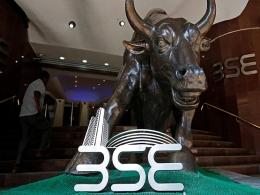The Reserve Bank of India on Friday slashed interest rates by 75 basis points in an emergency move to revive economic growth hit by the coronavirus pandemic and the nationwide lockdown.
The central bank cut the repo rate—its main lending rate—to 4.4% from 5.15%, RBI governor Shaktikanta Das said in a video conference. It also lowered the reverse repo rate by 90 basis points, to 4% from 4.9%, and reduced the banks’ cash reserve ratio by 100 basis points to inject Rs 1.3 trillion of liquidity into financial markets.
“The MPC (monetary policy committee) is of the view that macroeconomic risks, both on the demand and supply sides, brought on by the pandemic could be severe. The need of the hour is to do whatever is necessary to shield the domestic economy from the pandemic,” the RBI said in a statement.
The RBI joins the US Federal Reserve and the Bank of Japan in easing monetary policy as the coronavirus pandemic spreads across the world. The virus has infected more than 500,000 people globally and killed over 21,000.
In India, more than 700 people have been infected and at least 16 have died so far from COVID-19, the respiratory illness caused by the new coronavirus that originated in China late last year and has now spread to 190 countries.
Prime Minister Narendra Modi on March 24 ordered a nationwide lockdown for 21 days to control the spread of the virus. The lockdown, analysts say, will drag down economic growth for the current quarter as well as for the next fiscal year.
The RBI didn’t specify any outlook for economic growth, saying only that the pandemic will hurt most sectors and that India will face adverse implications if a global slowdown deepens.
The RBI’s rate cut comes a day after finance minister Nirmala Sitharaman outlined a $22.6 billion relief package to help the poor tide over the lockdown.
Responding to the RBI's rate cut, State Bank of India said late in the evening that it would also cut interest rates on its loan by 75 basis points. The nation's biggest bank by assets also reduce interest rates on deposits by 20 to 50 basis points.
The RBI had cut its policy rate by 135 basis points over five straight meetings last year, before surprising markets in December by holding rates steady due to growing concerns over inflation. The central bank had also kept interest rates steady in its last monetary policy meeting in February.
The next meeting of the monetary policy committee was scheduled to begin on March 31. But Das said the evolving situation because of the outbreak prompted the RBI to advance the meeting, which ended on Friday.
Das also said that the central bank would retain its “accommodative” stance as long as it was necessary to support economic growth while making sure that inflation remained within its target.
Retail inflation in February had eased to a two-month low of 6.58%, but remained above the RBI’s upper limit of 6%.
Analysts and economists welcomed the RBI’s emergency rate cut, and many expect the central bank to ease monetary policy further in coming months.
Upasna Bhardwaj, senior economist at Kotak Mahindra Bank, expects the RBI to cut rates by another 40-50 basis points depending on the spread of COVID-19.
Rahul Bajoria, chief India economist at Barclays, expects the repo rate to decline to 3.5% by August. “We currently expect another 50-basis-point cut in June, followed by 40 basis points at the August meeting,” he said.







